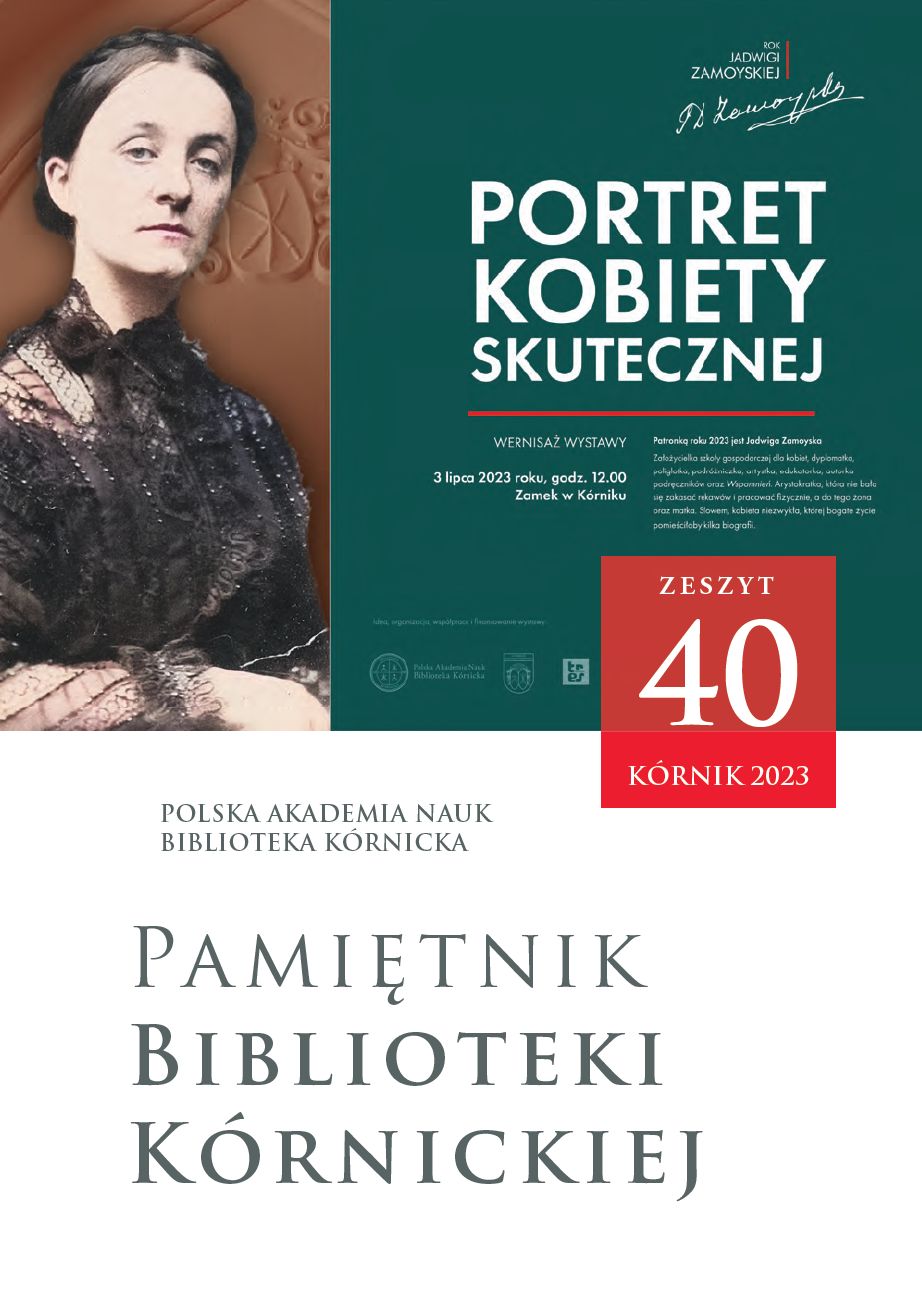MNEMOTECHNICZNA METODA NAUCZANIA HISTORII GEN. JÓZEFA BEMA
W ŚWIETLE ŹRÓDEŁ BIBLIOTEKI KÓRNICKIEJ
Abstrakt
W artykule omówiono działania generała Józefa Bema związane z promocją i udoskonaleniem polskiej metody mnemotechnicznej (méthode mnémonique polonaise) we Francji. Ogłoszony
przez Antoniego Jaźwińskiego u progu lat 30. XIX w. sposób nauczania chronologii, z czasem także innych przedmiotów, rozwijany był od 1836 r. przez generała Bema i jego współpracowników. Ewolucję systemu, zmiany w nazwie metody, a także starania o jej upowszechnienie w szkolnictwie udało się w dużej mierze rekonstruować w oparciu o materiały Biblioteki Kórnickiej. Przeanalizowano interesujący zbiór (głównie rękopisów): Korespondencja gen. J. Bema w sprawie metody tegoż uczenia historii oraz inne źródła dotyczące tego zagadnienia. Przeprowadzone badania pozwalają zweryfikować ustalenia biografów Józefa Bema dotyczące działań generała w latach 1836––1846. Analiza źródeł skłania także do refleksji nad rzeczywistym znaczeniem i oddziaływaniem dydaktycznych rozwiązań Bema, które od 1841 r. nazywano méthode mnémonique franco-polonaise.
This paper discusses Gen. Józef Bem’s activity related to the promotion and improvement of the Polish mnemonic method (méthode mnémonique polonaise) in France. The manner of teaching chronology – and, over time, also other subjects – announced by Antoni Jaźwiński at the turn of the 1830s, was developed from 1836 by Gen. Bem and his collaborators. The evolution of the system, changes of the name of the method, as well as efforts to popularise it in education, have largely been reconstructed on the basis of materials held by the Kórnik Library. The analyses covered an interesting, mainly hand-written collection Korespondencja gen. J. Bema w sprawie metody tegoż uczenia historii [Gen. J. Bem’s Correspondence Concerning His Method of Teaching History] and other relevant sources. The research made it possible to verify the findings of Gen. Józef Bem’s biographers concerning his activity in the period 1836–1846. Source analysis also facilitates reflection on the actual significance and impact of Bem’s didactic solutions, which as of 1841 were called méthode mnémonique franco-polonaise.

